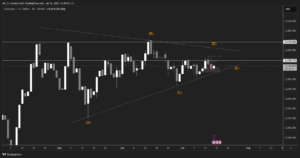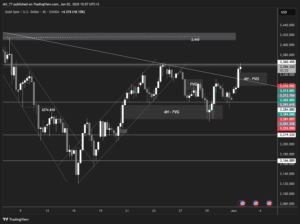European bourses are set to open around 1% lower as the energy crisis in Europe escalates and as worries over the health of Credit Suisse grow.
· USD/JPY rises towards 145.00 after weak manufacturing PMI data
· GBP/USD rises as the government is to abandon the top tax rate cut
· Oil prices rise as OPEC+ expected to cut output
On Friday, hotter than expected core PCE, the Federal Reserve’s preferred inflation gauge, coupled with stronger personal spending, raised expectations that the Federal Reserve will be emboldened to raise interest rates more aggressively. The S&P500 and the Nasdaq fell 1.5% to new 2-year lows.
Asian factory activity
Factory output in Asia broadly weakened in September amid slowing demand from China and other major economies, adding to already strong cost pressure headwinds and clouding the regions economic outlook. Manufacturing grew at a slower pace in Japan, with the PMI falling to 50.8 in September, down from 51 in August and defying expectations of a rise to 51.5. The yen weakened following the report, and USD/JPY is rising towards the key 145.00 line in the sand, which prompted an intervention by Tokyo into the forex market to support the yen.
Energy crisis
The negative close on Wall Street, combined with weak factory activity in Asia overnight, sets Europe on track for a negative start on the open. Furthermore, investors continue to fret over the region’s energy crisis and worries over the health of the Swiss banking giant Credit Swiss.
Gazprom suspended gas supplies to Italy this weekend in the latest escalation of the Russian – European conflict over the natural gas supply, which started when Russia invaded Ukraine and the West applied sanctions on Moscow. On Friday, European ministers announced plans to introduce a windfall tax on energy firm’s profits. Ministers are due to meet again at the end of the week to discuss the next moves to bring down energy prices.
The DAX is set to open 1% lower, and the Italian FTSE Mib is set to open -0.9% in the red.
Credit Suisse
Concerns over the health of Credit Suisse could see the stock fall sharply on the open. The bank’s credit default swaps, which bring protection against the bank defaulting, jumped sharply on Friday, rising to the highest level in a decade.
GBP rises
The pound briefly spiked towards 1.13 on reports that the government will abandon the cut to the top tax rate after several figures within the Conservative party spoke out against the measure over the weekend. The cut was just a small part of the Chancellor’s huge tax giveaway, triggering financial market turmoil. GBP/USD trades +0.2% higher at the time of writing, just below 1.1
Oil
Oil has jumped over 2.5% at the start of the week as investors look ahead to Wednesday’s OPEC+ meeting. The oil cartel will meet to discuss oil production levels for November. They are expected to consider cutting output by more than 1 million barrels per day, which would mark its largest oil output reduction since before the pandemic.
The meeting comes as oil prices have plunged across the past four months as recession fears and COVID lockdowns in China hurt the demand outlook, and the stronger USD also weighed on the price. If the group agrees to press ahead with the output cut, it will be the second consecutive month of production cuts after the group decided to reduce output by 100k barrels last month. US crude oil has risen above $81 per barrel.
Disclaimer: This article is not investment advice or an investment recommendation and should not be considered as such. The information above is not an invitation to trade and it does not guarantee or predict future performance. The investor is solely responsible for the risk of their decisions. The analysis and commentary presented do not include any consideration of your personal investment objectives, financial circumstances, or needs.





